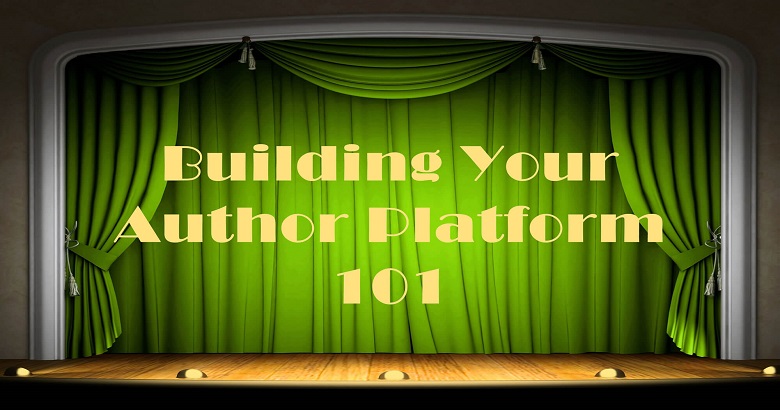For many aspiring authors, getting a traditional publisher to publish their book is a dream come true. However, navigating the publishing world can be complex and challenging. This blog post will guide you through the essential steps to increase your chances of getting a publisher to publish your book.
What is the Publishing Landscape
Traditional Publishing vs. Self-Publishing
Before diving into the process, it’s crucial to understand the differences between traditional publishing and self-publishing.
- Traditional Publishing: Involves submitting your manuscript to a publishing house. If accepted, the publisher is responsible for editing, designing, printing, and marketing your book. In return, the author typically receives an advance and royalties from book sales.
- Self-Publishing: The author takes on all aspects of the publishing process, from editing to marketing. This route offers more control and a higher percentage of profits but requires significant time and resources.
Types of Publishers
There are different types of publishers you might consider:
- Big Five Publishers: These are the largest and most prestigious publishing houses (Penguin Random House, HarperCollins, Simon & Schuster, Hachette, and Macmillan).
- Mid-Sized Publishers: These publishers can offer more personalized attention and are often more flexible than the Big Five.
- Small Presses: Smaller publishers can be more accessible to new authors and often focus on niche markets.
- Academic and University Presses: These specialize in scholarly works and are ideal for academic authors.
Preparing Your Manuscript
Writing a Compelling Book
The first and most crucial step is to write a compelling book. Your manuscript should be well-written, engaging, and polished. Here are some tips:
- Strong Opening: Grab the reader’s attention from the first page.
- Well-developed characters: Create relatable and multi-dimensional characters.
- Engaging Plot: Ensure your story has a clear beginning, middle, and end, with sufficient conflict and resolution.
- Polished Prose: Edit your manuscript thoroughly to eliminate grammatical errors and improve readability.
Understanding Your Genre
Research your genre thoroughly. Understand the conventions, trends, and expectations of your target audience. Read widely within your genre to see what works and what doesn’t.
Editing and Proofreading
Editing is crucial. Consider hiring a professional editor to help polish your manuscript. There are different types of editing:
- Developmental Editing: Focuses on the structure and content of your book.
- Line Editing: Focuses on the flow of sentences and paragraphs.
- Copyediting: Ensures correct grammar, punctuation, and consistency.
- Proofreading: The final step is to catch any remaining errors.
Crafting a Winning Book Proposal
What is a Book Proposal?
A book proposal is a document that pitches your book to potential publishers. It is especially important for non-fiction works but can also be useful for fiction. A strong book proposal includes the following:
- Overview: A summary of your book.
- Market Analysis: Information about the target audience and market potential.
- Author Bio: Your credentials and why you’re the right person to write this book.
- Chapter Outline: A detailed outline of each chapter.
- Sample Chapters: One or more sample chapters to showcase your writing.
Writing a Query Letter
A query letter is your first contact with an agent or publisher. It should be concise and compelling:
- Introduction: Briefly introduce yourself and your book.
- Synopsis: Provide a summary of your book, highlighting the main plot and characters.
- Credentials: Mention any relevant writing experience or credentials.
- Closing: Politely request the agent or publisher to read your manuscript.
Researching Agents and Publishers
Not all publishers accept unsolicited manuscripts, so finding a literary agent can be crucial. Here’s how to go about it:
- Literary Agents: Agents act as intermediaries between authors and publishers. They can help you refine your manuscript and pitch it to the right publishers.
- Publisher Research: Use resources like the Writer’s Market, Publisher’s Marketplace, and literary agency websites to find potential agents and publishers interested in your genre.
Submitting Your Manuscript
Following Submission Guidelines
Each publisher and agent has specific submission guidelines. Follow these meticulously to avoid having your manuscript rejected outright. Common requirements include:
- Query Letter: A brief introduction to you and your book.
- Synopsis: A detailed summary of your book’s plot.
- Sample Chapters: The first three chapters or a specific word count.
- Author Bio: Information about your writing background and credentials.
Being Patient and Persistent
The submission process can be lengthy, and rejections are common. Here’s how to handle it:
- Be Patient: It can take weeks or months to hear back from agents and publishers. Use this time to continue writing and improving your craft.
- Be Persistent: Rejections are a part of the process. Don’t be discouraged by them. Use your feedback to improve your manuscript and submit it to other agents and publishers.
Building Your Author Platform
The Importance of an Author Platform
An author platform refers to your ability to reach potential readers and is crucial for both fiction and non-fiction writers. It demonstrates to publishers that you have a ready-made audience for your book. Components of an author platform include:
- Website: A professional author’s website with a blog can showcase your writing and attract followers.
- Social Media: Active social media profiles like Twitter, Instagram, and Facebook can help you engage with readers and build a fan base.
- Email List: Building an email list lets you communicate directly with your audience about book launches and other important updates.
- Public Speaking and Workshops: Participating in public speaking engagements, workshops, and writing conferences can help you gain visibility and credibility.
Networking
Networking with other writers, agents, and industry professionals can open doors. Here are some ways to network effectively:
- Writing Groups and Workshops: Joining writing groups and attending workshops can help you connect with other writers and learn from their experiences.
- Conferences and Book Fairs: Attending literary conferences and book fairs can provide opportunities to meet agents, publishers, and fellow authors.
- Online Communities: Participate in online writing communities and forums. Engage in discussions, offer feedback, and build relationships.
Leveraging Professional Help
Literary Agents
Literary agents can significantly increase your chances of getting published. They have industry connections and can negotiate contracts on your behalf. Here’s how to secure an agent:
- Research: Identify agents who represent your genre. Look at books similar to yours and note their agents.
- Personalized Queries: Tailor each query letter to the specific agent. Mention why you chose to query them and how your book fits their interests.
- Persistence: Follow up politely if you haven’t heard back within the specified timeframe. Keep submitting to other agents in the meantime.
Editors and Consultants
Hiring professional editors and publishing consultants can be beneficial:
- Freelance Editors: A freelance editor can provide an objective perspective and help polish your manuscript.
- Publishing Consultants: Consultants can guide the publishing process, from manuscript preparation to submission strategies.
Navigating the Contract Process
Understanding Publishing Contracts
You will be offered a publishing contract if a publisher is interested in your manuscript. Understanding the terms is crucial:
- Advance: The upfront payment you receive upon signing the contract. This is an advance against future royalties.
- Royalties: The percentage of sales you’ll earn after the advance is recouped.
- Rights: Pay attention to the rights you’re granting, including print, digital, audio, and foreign rights.
- Publication Timeline: The timeline for editing, production, and release of your book.
- Marketing and Promotion: Understand what marketing support the publisher will provide and what will be expected of you.
Legal Advice
Consider hiring a literary lawyer or a knowledgeable agent to review the contract. They can help ensure your interests are protected and you understand all the terms.
Marketing and Promoting Your Book
Collaborating with Your Publisher
Work closely with your publisher’s marketing team to develop a comprehensive plan. Here are some common strategies:
- Book Launch Events: Plan book signings, readings, and virtual launch events.
- Media Coverage: Secure interviews, reviews, and features in relevant publications.
- Social Media Campaigns: Use social media to build excitement and engage with readers.
Personal Marketing Efforts
Even with a publisher, your efforts can significantly impact your book’s success:
- Author Website and Blog: Regularly update your blog and website with content related to your book and writing journey.
- Email Marketing: Send updates to your email list about your book’s release, events, and promotions.
- Book Tours and Speaking Engagements: Participate in book tours, literary festivals, and speaking engagements to promote your book.
Conclusion
Getting a publisher to publish your book is a challenging but rewarding process. You can increase your chances of success by writing a compelling manuscript, understanding your genre, crafting a strong book proposal, and actively building your author platform. Remember to be patient and persistent, as the journey to publication can be long and filled with obstacles. Utilize professional help when necessary, and be proactive in marketing and promoting your book. You can achieve your dream of becoming a published author with dedication and hard work.
Frequently Asked Questions
1. How should I format my manuscript before submission?
Manuscripts should typically be double-spaced, use a standard font like Times New Roman in 12-point size, and include 1-inch margins. Each page should be numbered, and your contact information should be on the first page.
2. What is a query letter and why is it important?
A query letter is a one-page letter sent to literary agents or publishers to pitch your book. It should include a brief synopsis, your credentials, and why you believe the book is a good fit for them.
3. Should I have my manuscript edited before submitting to a publisher?
Yes, having your manuscript professionally edited can improve its quality and increase your chances of getting accepted by a publisher.
4. How can I find the right publisher for my book?
Research publishers who specialize in your genre, check their submission guidelines, and consider whether they accept unsolicited manuscripts or if you need a literary agent.
5. What are literary agents and do I need one?
Literary agents act as intermediaries between authors and publishers, helping to sell manuscripts and negotiate contracts. While not always necessary, they can be very beneficial, especially for new authors.





